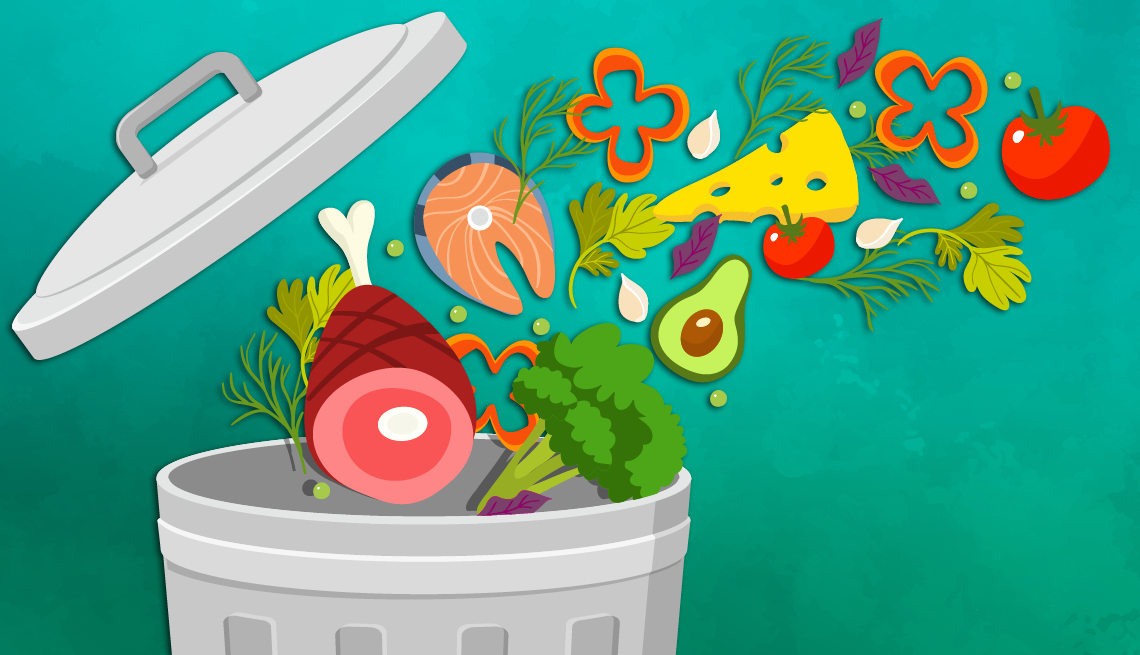
9 ways to reduce food waste at home
- Select a language for the TTS:
- UK English Female
- UK English Male
- US English Female
- US English Male
- Australian Female
- Australian Male
- Language selected: (auto detect) - EN
Play all audios:

6. UNDERSTAND DATE LABELS Confused by expiration, sell-by, best-by and use-by dates on food? “Food date labels are often manufacturers’ best guess of when food is at its peak, but it has
little to do with food safety, other than infant formula,” Sevilla says. Instead, rely on the sniff-and-taste test to determine if food is OK to eat, she suggests. Simplified and
standardized food date labels have been proposed in Congress this year. 7. DON’T BE AFRAID OF IMPERFECT PRODUCE Fruits and vegetables that may be bruised or misshapen may be just as
nutritious as other food but cost less. “Food doesn’t need to look perfect to taste good,” Sevilla says. Companies like Imperfect Foods, Misfits Market and Hungry Harvest will deliver
imperfect goods to your door. 8. GROW YOUR OWN FOOD Whether it’s growing herbs on the windowsill or planting fruit trees in the backyard, reduce the amount of food you buy by gardening.
Homegrown food also has a smaller carbon footprint. If you don’t have space for a garden at home, consider joining a community garden in your neighborhood. Carlson of Florida grows herbs,
vegetables and fruit trees, such as mango, avocado and lychee, in a large garden. Not only does she save money by not buying as much at the supermarket, but she also shares her bounty with
neighbors and colleagues. “I am feeding the community,” she says. One recent day, she brought 35 mangoes to school to share. 9. START COMPOSTING Leftover inedible food scraps, like fruit
peels, can be composted to aid new food growth and send less food waste to landfills. Composting is the natural process of breaking down food scraps and other organic material into
nutrient-rich soil. You can compost in your yard or in a countertop bin in your kitchen. All of California and some cities, such as Boulder, Colorado, and Seattle, offer curbside compost
service. Private companies offer home compost pickup and drop-off services in many areas, such as Compost Cab in Washington, D.C., CompostNow in several cities in five states and Viva La
Compost in Las Vegas. Contact your town or city to see what’s available. Shafroth of Michigan not only composts her own waste but also that of two neighbors. “It cranks out so much
unbelievable soil,” which she uses in a large garden to grow vegetables, flowers and fruit trees, she says. “I’m teaching my 3½-year-old grandson all about composting and how it’s magic.”
